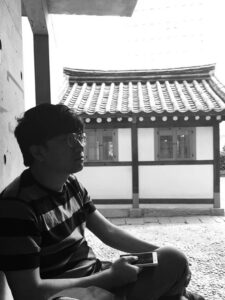How Do You Become A Red Carpet Fashion Designer At Age 11 In 2021 For Women
Here at Fashion is Psychology we were delighted to be invited to the press conference to learn all about Red Carpet Green Dress™ (RCGD), a women-led global change-making organisation born out of a need for more ethical clothing.
RCGD hosts an annual design competition open to those with an interest or passion for sustainability. Previously, the organisation has teamed up with many designers to create red carpet-worthy looks for stars including Lakeith Stanfield who illustrated ethical high-end fashion at the 2018 Oscars.
Samata Pattinson CEO says
"by bringing together young and established talents, we hope to encourage more designers to take a proactive step to building a more eco-friendly fashion world".

RCGD x TENCEL™ x CLO Virtual 2021
This year, applicants presented a digital sketch of their sustainable red carpet design before the international contest closed in August. One gown and one suit design were selected by the international contest judging panel, consisting of Suzy Amis Cameron (RCGD Founder), Harold Weghorst (Vice President of Global Marketing & Branding, Lenzing AG), Micaela Erlanger (Celebrity Fashion Stylist) and Abrima Erwiah (Co-founder of Studio 189).
Who are the winners of this years contest?
The judging panel are delighted to announce this year's winning duo: Yuriko Fukuda and Zhi Hong Benjamin Koh.
Born in Japan, UK-based Yuriko Fukuda is this year's womenswear winner.
"Expressing myself through design feels like meditation. Our minds and art are indeed interconnected, having a bidirectional impact on our mental health. Fashion is a work of art and I believe it has the power to control our mind and body."

Singapore-based fashion, textile and product designer Zhi Hong Benjamin Koh is this year's menswear winner.
"In 2016, I founded The Material Atelier by 本 (BEN), a multi-disciplinary creative studio focused on seeking sustainable fashion, featuring collaborations with local artists to create sustainable wearable art. One of our goals is to inform the public through informative videos about what goes into the material and the design of their garments… I joined RCGD with the hope of sharing our sustainable fashion vision."

What prize will the winners receive?
The looks will be showcased as part of an exhibition to leading sustainable advocates in Los Angeles. All winners will be introduced to a sustainable fashion and entertainment audience from across the globe, alongside a monetary award. The winners will also receive business mentorship with RCGD's CEO Samata Pattinson, support and access to RCGD's extensive network, and creative support for their fledgling careers.
The designs chosen by the winners will be put into production in early 2022 with sustainable eco-couture textiles in collaboration with TENCEL™ and sponsored by CLO.
Harold Weghorst, TENCEL™, textile speciality brand, CEO, hopes RCGD will inspire future generations to be sustainable as the competition showcases the beauty of eco-friendly designs to the world. He emphasises the importance of "maximising impact whilst minimising footprint".
CEO of CLO Virtual Fashion, Simon Kim expresses that technology is the answer to operate more sustainably as Virtual Fashion provides expandability to create designs in a socially responsible way.
Next, we asked CEO Samata Pattinson to give her take on Fashion Psychology:
Fashion is Psychology: How would you describe the psychology behind buying sustainably?
Samata Pattinson: I think everyone has a different mindset. For me, buying sustainably is about the questions I ask myself before making a purchase and approaching the idea of consumption from a minimalist point of view. I look at bringing something into my life that I value, knowing we all value things differently.
The psychology behind sustainability is one of constantly balancing discernment and joy. Discernment in being selective about the purchases being made and having the genuine interest to find out more about those stories. Balanced with the joy of wanting to bring something into your life that has been made in a way that is respectful to people and the planet.
I think when you take an interest in sustainability your approach to purchasing is accepting every purchase is part of a bigger picture.
FiP: How can we make sustainability more accessible?
Samata: I think this means recognising that people have different education levels, different awareness levels, different access levels and then understanding this means you must speak to people in different ways. Not every single person is looking at sustainability with the same perspective, and if we don't adjust the lens which we are speaking through then we run into the danger of painting every situation with the same colour. In addition, we sometimes approach these conversations as if we're teaching people things that they already know, and that can be quite patronising.
So perhaps what is missing is humility and awareness that education is a two-way conversation, and ensuring we show compassion about peoples' different existences.
FiP: How does RCGD improve overall well-being?
Samata: Well-being is defined by different people from different perspectives from us. We try and focus on education-making opportunities for people to learn and empower themselves with knowledge and understanding.
For me, education is a huge part of my personal well-being, having a better understanding of the world around me. We create opportunities, which means we try and reach talent in all corners of the globe to show the importance of the narrative not being dominated by a small power cluster. The contest we have live right now in partnership with TENCEL and CLO is about pushing to reach creatives from community colleges to high performing colleges.
That range is important – we want creatives in different places to feel seen and welcome. We also believe strongly in taking these conversations into places where average people exist, not just having them in silos of eco-warrior spaces.
All of this is how we see sustainability is being de-stigmatised and becoming a more accessible conversation in space.

The competition has our full support in helping draw attention to the importance of more positive practices in fashion. You can find out more by visiting the website here .
How Do You Become A Red Carpet Fashion Designer At Age 11 In 2021 For Women
Source: https://fashionispsychology.com/red-carpet-green-dress-design-contest-winners-2021/
Posted by: wellsuplits00.blogspot.com

0 Response to "How Do You Become A Red Carpet Fashion Designer At Age 11 In 2021 For Women"
Post a Comment